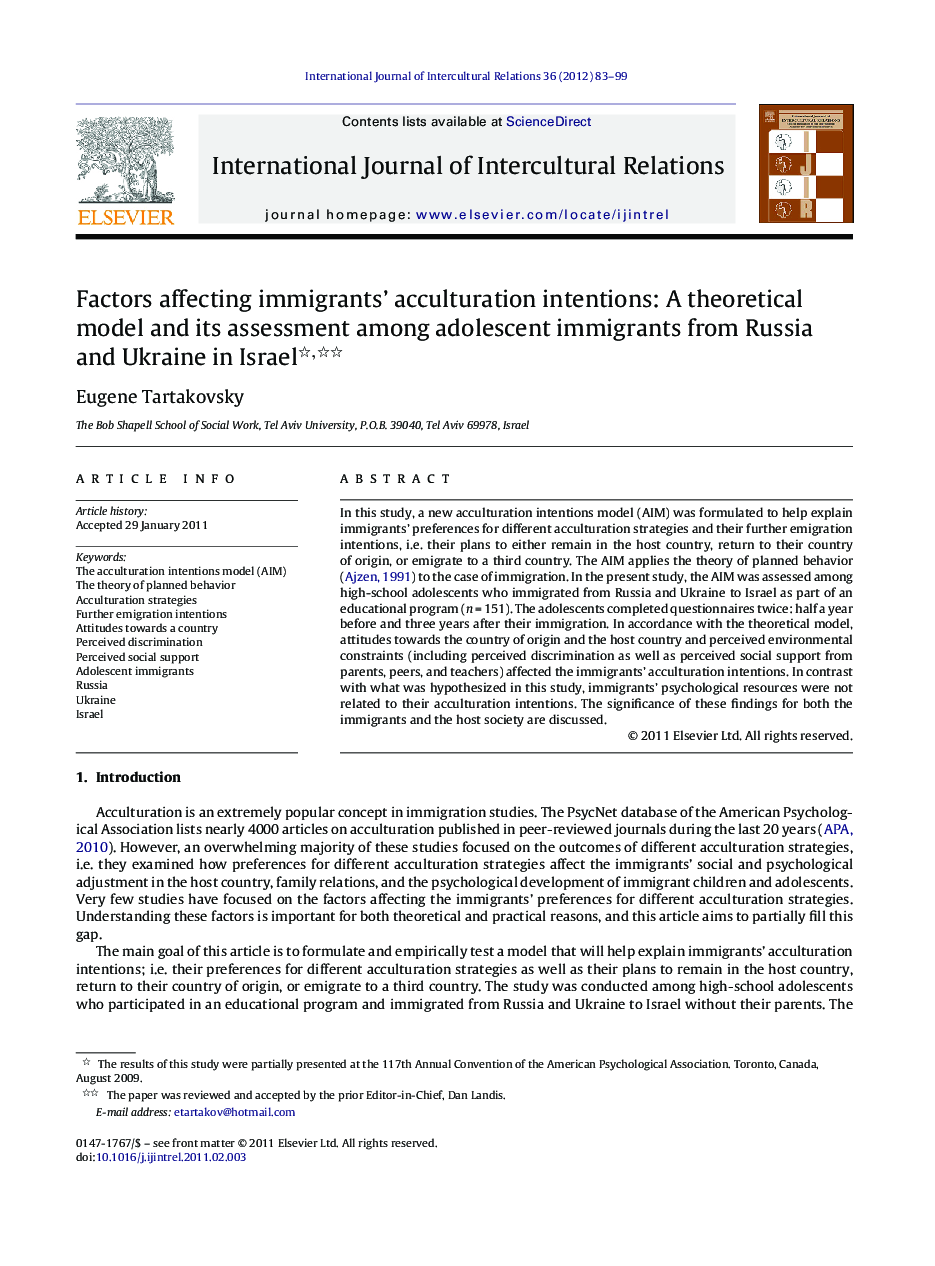| کد مقاله | کد نشریه | سال انتشار | مقاله انگلیسی | نسخه تمام متن |
|---|---|---|---|---|
| 947125 | 1475765 | 2012 | 17 صفحه PDF | دانلود رایگان |

In this study, a new acculturation intentions model (AIM) was formulated to help explain immigrants’ preferences for different acculturation strategies and their further emigration intentions, i.e. their plans to either remain in the host country, return to their country of origin, or emigrate to a third country. The AIM applies the theory of planned behavior (Ajzen, 1991) to the case of immigration. In the present study, the AIM was assessed among high-school adolescents who immigrated from Russia and Ukraine to Israel as part of an educational program (n = 151). The adolescents completed questionnaires twice: half a year before and three years after their immigration. In accordance with the theoretical model, attitudes towards the country of origin and the host country and perceived environmental constraints (including perceived discrimination as well as perceived social support from parents, peers, and teachers) affected the immigrants’ acculturation intentions. In contrast with what was hypothesized in this study, immigrants’ psychological resources were not related to their acculturation intentions. The significance of these findings for both the immigrants and the host society are discussed.
Research highlights
► An acculturation intentions model (AIM) explains immigrants’ preferences for different acculturation strategies.
► Immigrants’ attitudes towards their country of origin and the host country affect their acculturation intentions.
► The attitudes towards the two countries are formed in the pre-migration period and are modified in the post-migration period.
► Immigrants who experience sufficient social support are more likely to choose the integration or assimilation strategies.
► Immigrants who feel discriminated are more likely to choose the separation or marginalization strategies.
Journal: International Journal of Intercultural Relations - Volume 36, Issue 1, January 2012, Pages 83–99